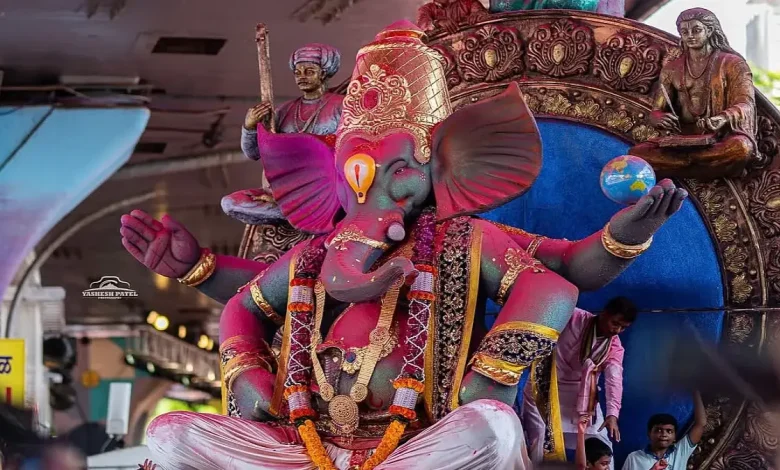RTI shows BMC spent ₹247.79 crore on Ganeshotsav since 2007; activists flag rising costs and seek transparency

Mumbai: An RTI query has revealed that the Brihanmumbai Municipal Corporation has spent ₹247.79 crore on Ganeshotsav-related arrangements in Mumbai since 2007–08, prompting fresh calls from activists for tighter oversight of festival expenditures, according to a report. Despite pandemic-era restrictions, annual spending during the two COVID-19 years exceeded ₹25 crore each, raising questions about cost controls when public events and immersions were curtailed, the report noted.
Activists’ concerns
RTI applicant Godfrey Pimenta of Watchdog Foundation said festival outlays have climbed over the last five years, arguing that expenses appeared “inflated” even during the pandemic and urging the civic body to rein in festival-related costs, as cited in the report. He contended that the spending trend underscores the need for stronger scrutiny of ward-level execution and contracting to ensure value for money.
Also read: Ganeshotsav 2025: Mumbai Cops Issue Stern Warning Over DJ Ban
What the funds cover
According to the RTI data, the expenses encompass barricading, lighting, stage installations, artificial ponds, and other festival logistics managed across civic wards during the 10-day celebration. The highest spend was recorded in 2024–25 at ₹54.47 crore, followed by ₹49.10 crore in 2023–24; for 2025–26 so far, the outlay is ₹91 lakh, the report added.
More ponds, added facilities
To encourage eco-friendly immersions, BMC has increased artificial ponds across the city, installing 288 this year across 25 wards compared with 204 last year, the RTI response shows. Additional amenities like LED screens at immersion sites have also been provided, though activists question rising bills when certain facilities are sponsored locally by political leaders, the report said.
Also read: BMC Leads Sustainable Ganeshotsav with Natural Dye Initiative
Call for vigilance
Activist Anil Galgali warned of a heightened risk of corruption due to ward-wise work allocation, stressing that junior staff often handle on-ground arrangements and require stronger monitoring, as reported. Campaigners have urged the civic body to publish a detailed white paper on Ganeshotsav spending and contracts to enhance public accountability, the report noted.




